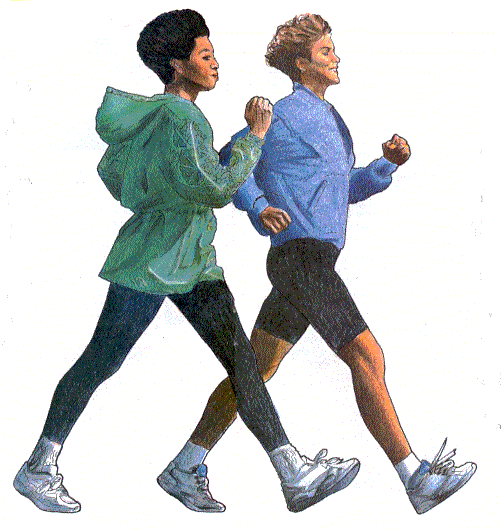
April is about to come to a close. The warmer weather is just around the corner. April is also known as Foot Health Awareness Month. But why should just one month be dedicated to Foot Health Awareness, when it should be all year long. We should always take care of our feet, to help us constantly go that extra distance. Everyone should always check their feet routinely for any cuts, bruises, skin lesions, and new lesions. Some of the most common areas to check are in between the toes and on the bottoms and backs if your heels. Yes, I know you are saying that this is difficult to see. If it is, grab a mirror or have someone check this for you. Check before you go to bed each night.
Foot pain is not normal and one should see a Podiatrist for care. I am also going to include a link to the American Podiatric Medical Association website that has a walking guide. It talks about the benefits of walking and exercise. It is very useful material. It will also discuss how often one should exercise per week. Its a great resource so be sure to check it out....as well as our web page for new information and updates.
http://www.apma.org/MainMenu/Foot-Health/FootHealthBrochures/Walking-guide.aspx
As always before going for that walk make sure you are in the proper shoe gear. Many people will wear that old pair of shoes, or those loafers that feel comfortable for their walks or exercise. Sure it may feel great during that time, but in the long run you are only harming your feet and preventing yourself from future activities. Invest in a good pair of shoes and it will surely pay off.
http://www.podiatrycarespecialists.com/




